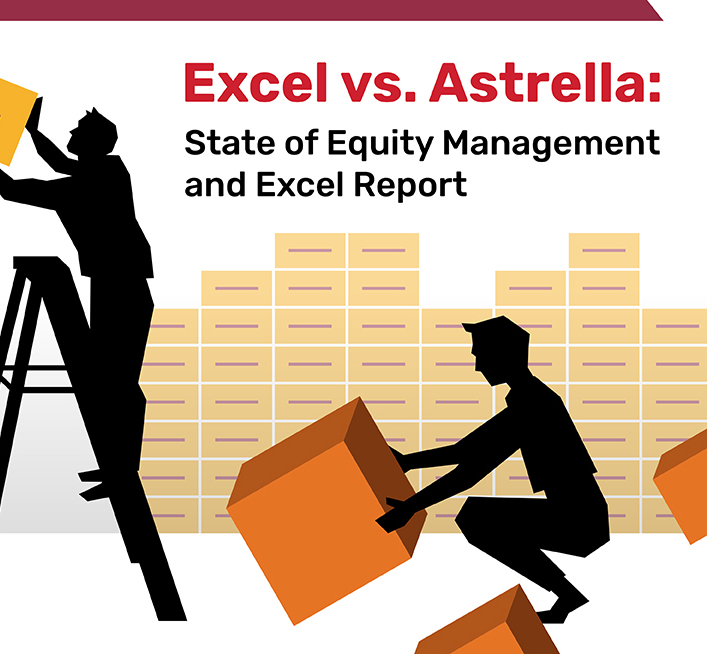Welcome to our comprehensive FAQ page on equity management, cap table management, and company funding. Whether you’re a startup founder, an employee seeking to understand stock options, or an investor navigating funding rounds, this resource is designed to provide clear and concise answers to the most common questions in this dynamic and vital industry. From defining the significance of a cap table to explaining the intricacies of 409A valuations and the roles of angel investors, we cover a wide range of topics essential for anyone involved in equity management. Explore our FAQs to understand better equity-related concepts, best practices, and nuances of this complex field.
What is a cap table, and why is it essential for equity management?
A cap table, short for “capitalization table,” is a document or spreadsheet that outlines the ownership structure of a company. It’s crucial for equity management because it records details about shareholders, their ownership percentages, and different classes of shares. A well-maintained cap table is essential for transparency, decision-making, and tracking of changes in ownership during funding rounds and exit events.
How does a 409A valuation impact stock options and equity compensation?
A 409A valuation determines the fair market value of a company’s common stock, affecting the strike price of stock options. Stock options must be granted at or above this value to avoid unfavorable employee tax consequences. Accurate 409A valuations are crucial for setting the right exercise price for stock options, and ensuring compliance with IRS regulations.
Can you explain the significance of an 83(b) election in equity management?
An 83(b) election is important because it allows employees with restricted stock grants to include the stock’s value in their taxable income at the time of grant, potentially reducing future tax liabilities. By making this election, employees can benefit if the stock appreciates in value between the grant and vesting dates.
What role do angel investors play in funding rounds for startups?
Angel investors provide capital to startups in exchange for equity ownership. They often fill the funding gap between the initial seed stage and more substantial venture capital investments. Beyond capital, angel investors can offer valuable expertise, mentorship, and networking opportunities to help startups grow.
How does ASC 718 affect financial reporting for stock-based compensation?
ASC 718 sets accounting standards for stock-based compensation, requiring companies to report the expense associated with stock options and other equity awards on their financial statements. Compliance with ASC 718 ensures transparency in financial reporting and helps stakeholders understand the impact of equity compensation on a company’s performance.
What is the burn rate, and why is it a critical metric in equity management?
The burn rate represents the rate at which a company consumes its available capital. It is critical in equity management because it helps assess how long a company can sustain its operations before needing additional funding. Monitoring the burn rate is essential for financial planning and investor relations.
Could you explain the differences between common stock and preferred stock?
Common stock represents basic ownership in a company and often includes voting rights. Preferred stock, conversely, comes with special privileges, such as priority in receiving dividends and proceeds from a company’s sale. Preferred stockholders typically have limited or no voting rights but receive preferential treatment in certain situations.
What are distribution waterfalls, and how do they impact equity distribution during an exit event?
Distribution waterfalls are mechanisms used to determine the order and priority of distributing proceeds from an exit event, such as a sale or IPO. They impact equity distribution by specifying how the funds are distributed among various stakeholders, ensuring that preferred and common shareholders receive their share according to predefined terms.
What does it mean for a company to reach “unicorn” status in the startup world?
When a company achieves “unicorn” status, it means it has reached a valuation of over $1 billion. This milestone signifies significant growth and is often a result of successful funding rounds and rapid expansion. Unicorns attract attention from investors and the tech industry due to their potential for substantial returns.
How do Employee Stock Purchase Plans (ESSPs) benefit employees and companies?
ESSPs benefit employees by allowing them to purchase company stock at a discounted price, typically through payroll deductions. This offers employees long-term savings and potential financial gain if the stock’s value increases. For companies, ESSPs can enhance employee retention, boost morale, and align employee interests with the company’s success.
What are stock options, and how are they typically granted to employees?
Stock options are contractual rights granted to employees, allowing them to purchase a specified number of company shares at a predetermined price (the exercise price) within a defined period. They are typically granted to employees as part of their compensation package and often vest over time or based on performance milestones.
Could you provide examples of scenarios where Rule 701 applies to equity issuance?
Rule 701 applies when private companies issue stock or stock options to employees, consultants, or advisors. Common scenarios include granting employees stock options, giving consultants equity, or offering stock as part of an employee stock purchase plan (ESSP). Rule 701 sets conditions and limitations on these issuances to maintain compliance with securities regulations.
What is the role of an equity management system in cap table management?
An equity management system is software designed to streamline and automate various aspects of equity management and cap table administration. It helps maintain accurate records of equity grants, vesting schedules, and ownership changes. Additionally, it can provide transparency to stakeholders and assist in compliance with legal and regulatory requirements.
How can a company determine its appropriate 409A valuation for stock options?
Determining a 409A valuation involves engaging a qualified expert who assesses various factors, including the company’s financials, industry comparables, and recent funding rounds. The valuation expert calculates a fair market value for the company’s common stock, which serves as the basis for setting stock option exercise prices.
What steps should a startup take when preparing for Series A funding?
Preparing for Series A funding involves several key steps, including refining the business model, demonstrating product-market fit, building a solid team, and having a clear growth strategy. Startups should also prepare financial projections, secure legal and financial advisors, and be ready to provide detailed documentation and due diligence materials to potential investors.
What rights and privileges do preferred stockholders typically have compared to common stockholders?
Preferred stockholders typically have several advantages over common stockholders. These include priority in receiving dividends, a higher claim on assets in the event of liquidation, and sometimes anti-dilution protections. However, preferred stockholders usually lack voting rights or have limited voting power compared to common stockholders.
How does a company’s burn rate impact its runway and future funding needs?
The burn rate, which measures a company’s capital spending rate, directly affects its runway—the amount of time it can operate before needing additional funding. A high burn rate may signal a shorter runway, necessitating more frequent fundraising efforts, while a lower burn rate can extend the company’s time to secure new investments.
What are the best practices for maintaining transparency and accuracy in cap table management?
Best practices for cap table management include using dedicated software, maintaining up-to-date records of all equity transactions, promptly recording changes in ownership, conducting regular audits, and involving legal and financial experts for compliance. Transparent cap table management builds trust among stakeholders and reduces the risk of errors or disputes.
How does equity management help retain and motivate employees?
Equity management plays a vital role in employee retention and motivation by offering employees a stake in the company’s success. Stock options, RSUs, and other equity incentives align employee interests with the company’s performance, creating a sense of ownership and encouraging long-term commitment and dedication.
What are stock options, and how are they typically granted to employees?
Stock options are contractual rights granted to employees, allowing them to purchase a specified number of company shares at a predetermined price (the exercise price) within a defined period. They are typically granted to employees as part of their compensation package and often vest over time or based on performance milestones. A stock option management software can be used to achieve this.

Tom Kirby
Tom Kirby serves as the Head of Global Sales at Astrella. With more than 20 years of experience in sales and business development, he is dedicated to fostering strong client relationships and assisting both private and public companies in understanding and effectively communicating their value.
































































































































